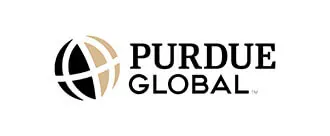Interested in helping families and children address issues in such areas as foster care or child protection? Purdue Global's Bachelor of Science in Human Services with a concentration in Child and Family Welfare could be a good fit.
<h2 id="section---FrequentlyAskedQuestions">Frequently Asked Questions</h2>
<h3 id="section---WhatKindOfProgramIsIt">What Kind of Program Is It?</h3>
<p>What are some intervention resources used when working with families and children? What are some milestones in the cognitive, psychological, and emotional development of adolescents? How do human services professionals advocate for children and families? You could expect to learn details about these kinds of topics when you study in the online Bachelor of Science in Human Services with a concentration in Child and Family Welfare program at Purdue Global. In major courses, you might discuss human behavior influences, social problems in the U.S., social policy development, case management practices, and intervention and prevention strategies in human services. The capstone is an integrative opportunity for you to demonstrate your mastery of all concepts explored throughout the curriculum.
</p>
<h3 id="section---WhatAreThePrerequisites">What Are the Prerequisites?</h3>
<p>Although there are no specific prerequisites before enrolling in this BS in Human Services program, an academic background in sociology and/or psychology would be beneficial. Strong analytical and problem-solving skills are helpful, as human services professionals must evaluate clients and situations and provide solutions for various family crises. Applicants to Purdue Global should have a high school diploma or GED; some programs may have additional requirements.
</p>
<h3 id="section---WhatAreTheCourseRequirements">What Are the Course Requirements?</h3>
<p>The BS in Human Services with a concentration in Child and Family Welfare program consists of 180 quarter credits. You must complete 45 quarter credits in core classes, 66 quarter credits in the major curriculum, 45 quarter credits in open electives, and 24 quarter credits in the concentration area.
</p>
<p><u>Core Courses</u>
</p>
<p />
<table border="1"><tr><th>Course Code</th><th>Course Title</th></tr>
<tr><td>CM107</td><td> College Composition I</td></tr>
<tr><td>CM220</td><td> College Composition II</td></tr>
<tr><td>CS214</td><td> Public Speaking for the Professional</td></tr>
<tr><td>CS212</td><td> Communicating Professionalism</td></tr>
<tr><td>SS144</td><td> Sociology</td></tr>
<tr><td>100/200 Level</td><td> Mathematics course</td></tr>
<tr><td>100/200 Level</td><td> Social Science course</td></tr>
<tr><td>100/200 Level</td><td> Science course</td></tr>
<tr><td>100/200 Level</td><td> Arts and Humanities course</td></tr>
</table><p><u>Major Requirements</u>
</p>
<p />
<table border="1"><tr><th>Course Code</th><th>Course Title</th></tr>
<tr><td>CM206</td><td> Interpersonal Communications</td></tr>
<tr><td>HN115</td><td> Human Services Program and Profession</td></tr>
<tr><td>HN144</td><td> Human Behavior and the Environment</td></tr>
<tr><td>HN200</td><td> Survey of Social Problems</td></tr>
<tr><td>HN205</td><td> Applied Skills for Human Services</td></tr>
<tr><td>HN220</td><td> Prevention and Crisis Intervention</td></tr>
<tr><td>CJ346</td><td> Diversity and Inclusivity in Public Safety</td></tr>
<tr><td>HN300</td><td> Human Services and Social Policy</td></tr>
<tr><td>HN330</td><td> Case Management in Human Services</td></tr>
<tr><td>HN410</td><td> Human Services Delivery</td></tr>
<tr><td>HN450</td><td> Legal and Ethical Issues in Human Services</td></tr>
<tr><td>HN499</td><td> Bachelor's Capstone for Human Services</td></tr>
</table><p><u>Open Elective Requirements</u>
</p>
<p>Choose a total of 45 credits in open electives
</p>
<p><u>Child and Family Welfare Concentration Requirements</u>
</p>
<p />
<table border="1"><tr><th>Course Code</th><th>Course Title</th></tr>
<tr><td>CJ420</td><td> Juvenile Justice</td></tr>
<tr><td>HN370</td><td> Child Welfare and Family</td></tr>
<tr><td>HN377</td><td> Studies in Child and Adolescent Development</td></tr>
<tr><td>HN430</td><td> Advocacy for Families and Youth</td></tr>
</table><h3 id="section---WhatCouldIDoAfterIGraduate">What Could I Do After I Graduate?</h3>
<h4 id="section---CareerOpportunities">Career Opportunities</h4>
<p>Upon completing the Bachelor of Science in Human Services - Child and Family Welfare program, you could explore employment opportunities in community centers, government offices, outreach programs, advocacy groups, or adoption agencies. You might help guide families through adoption, set up children in foster homes, counsel children in detention centers, or coordinate family support programs.
</p>
<p>Roles for which you might be a good fit include:
</p>
<ul><li>Youth advocate
</li><li>Child care supervisor
</li><li>Child development specialist
</li><li>Family services program manager
</li></ul><h4 id="section---AdvancedDegrees">Advanced Degrees</h4>
<p>You might need to obtain a more advanced degree than the BS in Human Services - Child and Family Welfare if you intend to pursue higher positions in counseling or management in the human services field. As a graduate student, you could expect to learn more about family theory, family law, intervention strategies, developmental issues, and behavioral assessment methods.
</p>
<p>Study options in this field include:
</p>
<ul><li>Master of Science in Family and Child Studies
</li><li>Master of Science in Applied Developmental Psychology
</li><li>Master of Science in Human Services - Family and Community Services</li></ul>


.svg)


